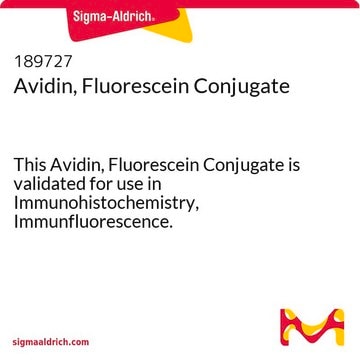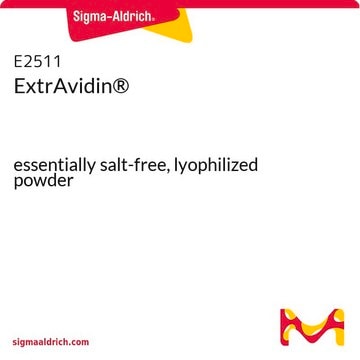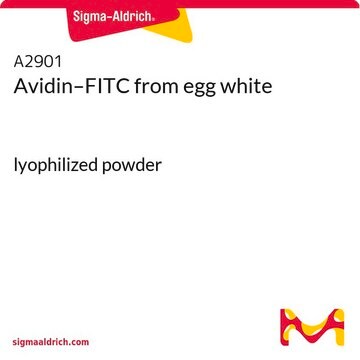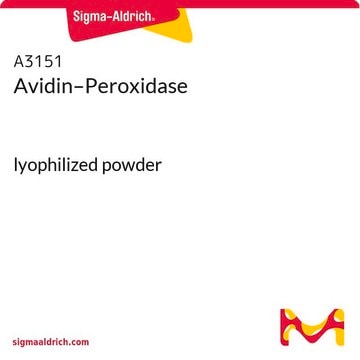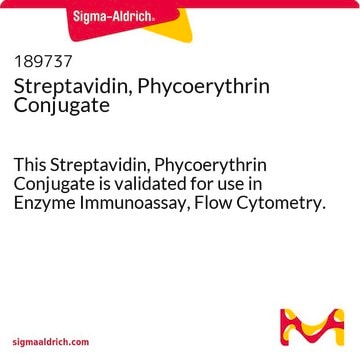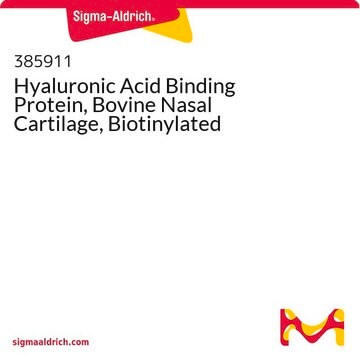E2761
ExtrAvidin®−FITC
buffered aqueous solution
About This Item
Produits recommandés
Conjugué
FITC conjugate
Niveau de qualité
Forme
buffered aqueous solution
Ampleur du marquage
3-6 mol fluorochrome per mol protein
Technique(s)
immunohistochemistry (formalin-fixed, paraffin-embedded sections): 20 μg/mL using human tissues
indirect immunofluorescence: 1:200
Conditions d'expédition
dry ice
Température de stockage
−20°C
Description générale
Application
- immunohistochemistry (formalin-fixed, paraffin-embedded sections) at a concentration of 20μg/mL using human tissues.
- Immunofluorescence†
- competitive binding assay
Forme physique
Notes préparatoires
Informations légales
Clause de non-responsabilité
Code de la classe de stockage
12 - Non Combustible Liquids
Classe de danger pour l'eau (WGK)
WGK 2
Point d'éclair (°F)
Not applicable
Point d'éclair (°C)
Not applicable
Certificats d'analyse (COA)
Recherchez un Certificats d'analyse (COA) en saisissant le numéro de lot du produit. Les numéros de lot figurent sur l'étiquette du produit après les mots "Lot" ou "Batch".
Déjà en possession de ce produit ?
Retrouvez la documentation relative aux produits que vous avez récemment achetés dans la Bibliothèque de documents.
Les clients ont également consulté
Notre équipe de scientifiques dispose d'une expérience dans tous les secteurs de la recherche, notamment en sciences de la vie, science des matériaux, synthèse chimique, chromatographie, analyse et dans de nombreux autres domaines..
Contacter notre Service technique


